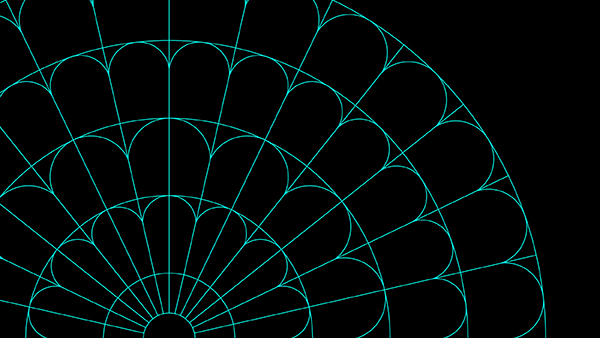The anonymous shortlisting of all Student Design Award brief submissions is complete and we are pleased to announce the shortlist for our nine categories.
We’re excited to meet the shortlist in May at our final stage of evaluation where shortlisted entrants are invited to discuss their submission with the judging panel during a series of interviews. Following this, our 2023 Student Design Award winners will be announced in June, and we will celebrate their achievements at a public awards ceremony on Tuesday 27 June.
2022-23 RSA Student Design Awards shortlist

All being well
How might we democratise health and wellbeing; creating the conditions and tools for individuals to help themselves, their loved ones and multiple generations?
- Connect & Care (Renate Aomere, Coventry University)
A program run by universities and local councils to tackle the student accommodation crisis and loneliness among old people by matching responsible young people who wish to rent a room at an affordable price with seniors who have a spare bedroom to let.
- The Bowel Movement (Emily Rubin, Kingston University)
A collaborative space for people with bowel conditions and bowel concerns - be it temporary or chronic - to share tips, safe spaces and experiences with others in the same boat, to create a bridge between sufferers and end the isolating lifestyle associated with bowel illnesses.
- Florere – Grow Together (Josh Richardson, Tyree Quansah, Nathaniel Bedeau, and Zayan Hossain, Loughborough University)
A service that guides the user through improving their mental wellbeing by utilising a companion plant to promote healthy habits and routines.
- 10-4 (Ten Four) (Jake Moran, Northumbria University)
An app-based delivery/collection service designed to aid HGV and LGV drivers in their pursuit of a healthier lifestyle.
- Health in Hands (Jack Norris, Sheffield Hallam University)
A free-to-use poster with embedded technology located in public spaces for the public to access information on their heart health.

Powering people
How might we make community-led renewable energy transitions accessible to everyone, including those most in need?
- Fishing for Power (Sagufta Janif, Brunel University London)
Using portable wave energy systems to create economic opportunities for women living in coastal communities through the co-operative business model.
- PowerUp (Millie Falla, Loughborough University)
An accessible, decentralised and community-led gym with a holistic approach to addressing both energy needs and community empowerment.
- PLAY WITH ENERGY (Anastasia Egeressy, Brunel University London)
A micro-grid school playground for children to generate renewable energy for their community.
- RetroQuick Rex (Tomás Coleman and John Fawcett-Peck, National College of Art and Design, Dublin)
A DIY kit with a sausage dog draught excluder. The kit enables anyone to insulate their home on a budget and informs the user on energy saving best practices.
- Solar Charged Communities (Reuben Riddiough, Leeds Beckett University)
A portable charging system and service for community centre users to help raise awareness and participation of renewable energy transitions in the cost of living crisis.

Signalling change
How might we tap into the potential of train stations so they become spaces that amplify and influence positive behaviours?
- Repair Station (Cristina Rusu and Sara Rajnai, National College of Art and Design, Dublin)
A service that encourages people to be more sustainable, offering options to repair objects instead of throwing them away by using the untapped potential of the train stations.
- Journey by Touch (Sam Love, Natalie Brazil and Lisa Black, City of Glasgow College)
A fully inclusive tactile mural aimed at those with visual impairments as a navigation tool.
- Palate Local Vending (Rob Swan, Northumbria University)
A service designed to get more people eating local food in train stations. Palate uses sustainably built vending outlets, with the aim of tackling climate change and boosting the local economy.
- GRAB A PLANT (Jai Mistry, Northumbria University)
An education-based initiative to encourage primary schools to have more social responsibility by sharing their creative and gardening skills with the public and train users.
- Step Into (Emily Evans, Nottingham Trent University)
Kinetic energy tiles are installed into stations as a way finding system and sustainable energy is generated as commuters walk along the tiles.

Planet generation
How might we create joyful place-based opportunities for people across generations to improve planetary health?
- Taste & Trade (Shakira Williams, Alfie Tipping and Olivia Triassi-Cassell University of the West of England)
An intergenerational safe space, to share food and swap skills.
- Glasán (Lorna Quinn and Mark McDonagh, National College of Art and Design, Dublin)
A collaborative game that promotes learning through play and interacting with the environment using seaweed based products.
- The Cloth Library (Elizabeth Mackey, Northumbria University)
A social enterprise which provides the infrastructure to better utilise clothing not saleable within the charity shop network, making it a valuable resource for local communities of designers and makers.
- Toast to Roast (Josie Field, Arts University Bournemouth
An events app that aims to reduce loneliness and create meaningful friendships between neighbours of different generations by eating toast together.
- Core: Zoen Lau, Arden Univeristy
A repurposed derelict mill that creates a circular and regenerative community which fosters cross-generational skill sharing, coworking, and CORE: education for the wellbeing of people and place.

Amplify connections
How might we amplify the potential of entertainment technology to connect people with one another from the comfort and safety of home?
- Sky Shift: (Christopher Lim Xian Da, Alexander Miller, Flinn McInerney and Patryk Lizut, Loughborough University)
A large-format ambient communications product proposal that empowers people in an increasingly fragmented physical and digital world to effectively live together, even across vast distances.
- Kinship (Gemma Cook, Arts University Bournemouth)
An app designed to help improve family connections and take the stress out of organising get-togethers.
- Tella (Leia Millburn, Gloria Ocran, Nicole Ibarra-Rivas and Lina Duong, Loughborough University)
Enhances bedtime storytelling through incorporating AI image generation to create visuals as the story is told; enabling loved ones to engage with a child’s bedtime story experience beyond the borders of physical distance.
- SKY NEXUS (Ian Manners, University of Dundee)
A smart home device which matches and connects users within their social circles based on their availability and chosen activity, the device acts to support communication and entertainment.
- Trilly (Roisin Duggan, Limerick School of Art and Design)
An app that encourages children and adults with intellectual disabilities to learn, connect and express themselves through singing and dancing.
- Sky Unite (Harry James, Taha Yousaf, Robert McKinna and David Hawkins, Loughborough University)
Using the power of football to amplify old and new connections through a thrilling, immersive match day experience from the comfort of the living room.

Building better
How might we apply circular and regenerative principles to build better homes for a resilient future?
- Sanctum (Gregory Pike, Bournemouth University)
Sanctum provides power over poverty to 75% of the world's population, enhancing their quality of life, providing clean drinking water, power and shelter from typhoons and rising sea levels.
- Houba Haus (Ferdia O’Connell and Lucas Stafford, National College of Art and Design, Dublin)
Modular mycelium panels that are designed to make home building circular and accessible.
- Mycelium Materials Experience (Chenger Song, Kingston University)
An experiential circular space that makes use of used coffee grounds to cultivate mycelium materials.
- ShellStyles (Satch Kulangara, Leeds Beckett University)
Sustainable tiles that use egg shell waste, designed to replace conventional ceramic tiles.
- Terra Air (Samantha Tinney, National College of Art and Design, Dublin)
A natural evaporative cooler made from terracotta that refreshes your space and eliminates CO2 emissions.

Nature of work
How might we reimagine the way we work in the future to reflect local context, experiences, and knowledge?
- Neighbourhood Patch (Helen Wat, Northumbria University)
Connecting people working remotely in cities to access private gardens in their local neighbourhood.
- Thirdspace (Melissa Bratton, University of Northampton)
Workspace for hybrid/remote workers solving inequalities in space for home and offices.
- Lux (Freddie Reed, Northumbria University)
A badge device and app to encourage intake of natural light for increased wellbeing and productivity.
- Pause and Play (Manuela De La Vega, University for the Creative Arts)
A campaign proposal to encourage knowledge workers to take more mindful breaks at the same time that they support local businesses, improving physical and mental health and creating a sense of community.
- The Future of Coworking Spaces for Parents with young children and babies (Alexandra Shirley, University of the Arts London)
A community-based coworking and childcare facility, tailored to the needs of likeminded individuals who juggle the demands of parent and employee

Tomorrow’s menu
How might we promote new relationships to food that are more secure, regenerative and culturally appropriate?
- MYCOPOD (Reuben Parry, Sebastian Hale, Jordan Davies and Aaron Clark, Loughborough University)
Devices inserted into the ground in farmland that utilise the symbiotic relationship between plants and fungi.
- G, Revolutionary Food for The Future (Ella Lovewell, Arts University Bournemouth)
A food product proposal which dynamically sources organic algae into nutritional, sustainable and ethical soups that can be consumed anywhere at any time by anyone.
- The Eternal Kitchen (Molly Pincombe, Arts University Bournemouth)
A line of regenerative baby food that introduces uncommon ingredients that are more climate resilient.
- MUNCH Project (Kok Ian Saw, Plymouth University)
A community-focused service design proposal for expanding food diversity through the controlled consumption of invasive species in restaurant.
- Kratky Krop (Andrew Quintal-Steytler, University of the West of England)
A low-cost, no-maintenance growing system using hydroponics method and re-purposing valuable urine to fertilise and provide nutrients for crops to grow.

Moving pictures
Conceive and produce an animation to accompany one of the two selected audio files that will clarify, energise and illuminate the content.
- Rebooting the System (Valentin Ivanov, Edinburgh Napier University)
An animation that tells the story of our connection to technology and urges us to reprogram the systems established within ourselves to regain control of our relationship with technology.
- Linking Humans and Nature (Adele Sediva, University of Portsmouth)
An animation that highlights degenerative mindsets and paradigms that are harming us and other life on Earth, exploring different ways how to shape these mindsets, creating a regenerative approach in everything we do.
- Social Injustice (Jennifer Lee, York St John University)
An animation that raises awareness of social justice, by highlighting the historical shortcomings of western society and arguing that everyone should be encouraged to question the status quo in order to improve and establish justice in today’s societies.
- Blueprints for the Future (Caoimhe Dineen, Limerick School of Art and Design)
An animation using the metaphor of the blueprint to break down the complex ideas surrounding regenerative design and show the steps we, as a society, need to take to accomplish this.
- Travelling the Maze of Concrete Injustice (Daire Powell, National College of Art and Design, Dublin)
An animated piece that converses on the oppression and social injustice that is still hidden in the world today; personifying buildings of the past and present to indicate the lasting evidence of systems used to exploit and degrade individuals of racial difference and other minority groups.
- Learn how to question (Tudor Dragomir, Birmingham City University)
An animation highlighting degenerative mindsets and paradigms that are harming us and other life on Earth, exploring different ways how to shape these mindsets, creating a regenerative approach in everything we do.

RSA Student Design Awards
Our competition for emerging designers who want to make a difference.
